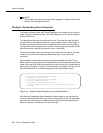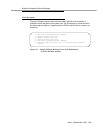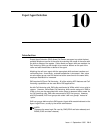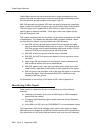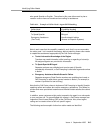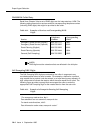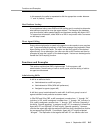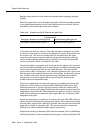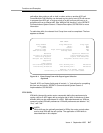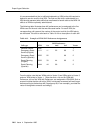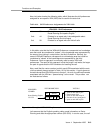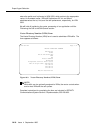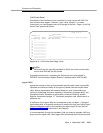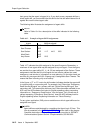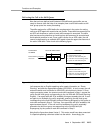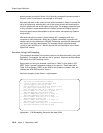
Functions and Examples
Issue 4 September 1995
10-7
calls either after putting a call on hold, or when active on another ACD call.
Forced Multiple Call Handling can be used to give priority to an ACD call over an
in-progress non-ACD call, or to give priority to a call from one skill over an in-
progress call from a different skill. See “Multiple Call Handling” in the
DEFINITY
Communications System Generic 3 Feature Description,
555-230-204 for more
information.
To administer skills, the relevant Hunt Group form must be completed. The form
appears as follows:
Figure 10-1. Hunt Group Form with Expert Agent Selection
Optioned
The skill, ACD, and Vector fields must all contain ‘‘y.’’ Instructions for completing
this form are included in
DEFINITY Communications System Generic 3
Implementation
, 555-230-653.
VDN Skills
VDN skills (along with certain vector commands) define the requirements for
routing calls to an ACD agent with a particular set of skills. A maximum of three
different skills can be administered to a VDN. Skills administered to a VDN are
commonly called VDN skill preferences. VDN skill preferences are labeled ‘‘1st,’’
‘‘2nd,’’ and ‘‘3rd.’’
NOTE:
While skills can be optionally assigned to VDNs, the vector controls when
and to what VDN skill the call queues. The application of VDN skills is
described later in this chapter.
HUNT GROUP
Group Number: Group Extension: Group Type:
Group Name: Skill? ACD?
Queue? Vector? AAS?
Security Code: Night Service Destination: COR:
ISDN Caller Disp: Coverage Path: TN:
Measured: Supervisor Extension:
Priority On Intraflow? Inflow Threshold (sec):
Controlling Adjunct: Adjunct Link Extension:
Multiple Call Handling? Acceptable Service Level (sec):
Objective:
Queue Length:
Calls Warning Threshold: Calls Warning Port: Extension:
Time Warning Threshold: Time Warning Port: Extension:
Redirect on No Answer (rings):
Forced Entry of Stroke Counts or Call Work Codes?



